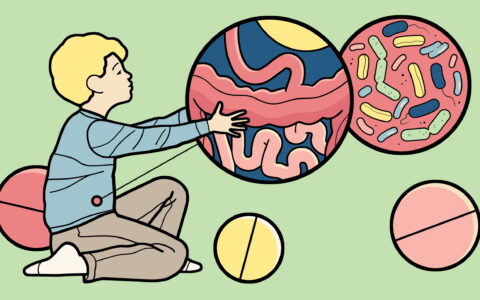Neuropsychiatric complications among children and adolescents with influenza are poorly studied and often attributed to antiviral medication, or a combination of antivirals and influenza.
But a better understanding these events and their causes is important for determining risk stratification and prevention strategies, according to Vanderbilt University Medical Center researchers, who have conducted the first in-depth study of the condition. Their findings were recently published in JAMA Pediatrics.
“Our study … showed that these events occur in both those children treated and not treated with an antiviral.”
“We are among the first to evaluate these serious events in a large pediatric population in the United States,” said principal investigator James Antoon, M.D., Ph.D., M.P.H., an assistant professor of pediatrics at Monroe Carell Jr. Children’s Hospital at Vanderbilt. “We knew some of the neurological events occurred, but we did not know how often and in whom.”
Antoon worked with his team to analyze four years of deidentified data from children and adolescents with flu to more clearly characterizing influenza-associated neuropsychiatric events, including seizures, encephalitis, altered mental status, ataxia/movement disorders, vision changes, dizziness and headache, as well as psychiatric events, consisting of homicidal, suicidal, self-harm behaviors, mood disorders and psychosis/hallucination.
“Our study quantified the number of pediatric neuropsychiatric events, described which children are more likely to experience the events, and showed that these events occur in both those children treated and not treated with an antiviral,” Antoon said.
Calculating Incidence
In their retrospective cohort study, the researchers included a total of 156,661 cases of flu.
The overall incidence of a neuropsychiatric event resulting in hospitalization was 51 per 100,000 person-weeks of influenza. Incidence rates by clinical severity were reported at 0.9 for critical, 40.8 for important, and 9.0 for unknown significance.
Rates were higher among adolescents and in pediatric patients with risk factors for influenza complications. Rates also were markedly higher in those with neurologic and psychiatric disorders.
The antiviral oseltamivir, marketed as Tamiflu, has a black box warning about neuropsychiatric side effects. Antoon says previous studies have been mixed on whether using the drug causes these events in practice.
Rates by sex and season, and for oseltamivir-exposed and -unexposed individuals, were similar, Antoon said.
“This potential side effect makes headlines every influenza season and is often a concern for parents and providers, who weigh the risk of these events when making the decision to treat with antivirals,” he said.
Risks and Recommendations
The most serious events, such as suicidal and self-harm behaviors, as well as encephalitis, were rare. However, Antoon acknowledges that each of these events is of concern, regardless of frequency.
“Our rates were similar to those reported by recent studies in other countries focusing on severe neurologic complications of laboratory-confirmed influenza infections,” he added.
Based on these results, he emphasized the importance of vaccination and antiviral treatment for children and adolescents at high risk for serious influenza complications, especially those with psychiatric and neurologic conditions.
With respect to oseltamivir and neuropsychiatric events, Antoon says these findings do not support an association, but he notes that they did not control for potential confounders to fully explore potential associations.
Future Directions
In future research, Antoon and his team will investigate the extent to which vaccination or antivirals may modify the risk of influenza-associated neuropsychiatric events.
“Ongoing studies will help us assess if use of influenza antivirals is associated with the risk of neuropsychiatric events in children,” Antoon said.





